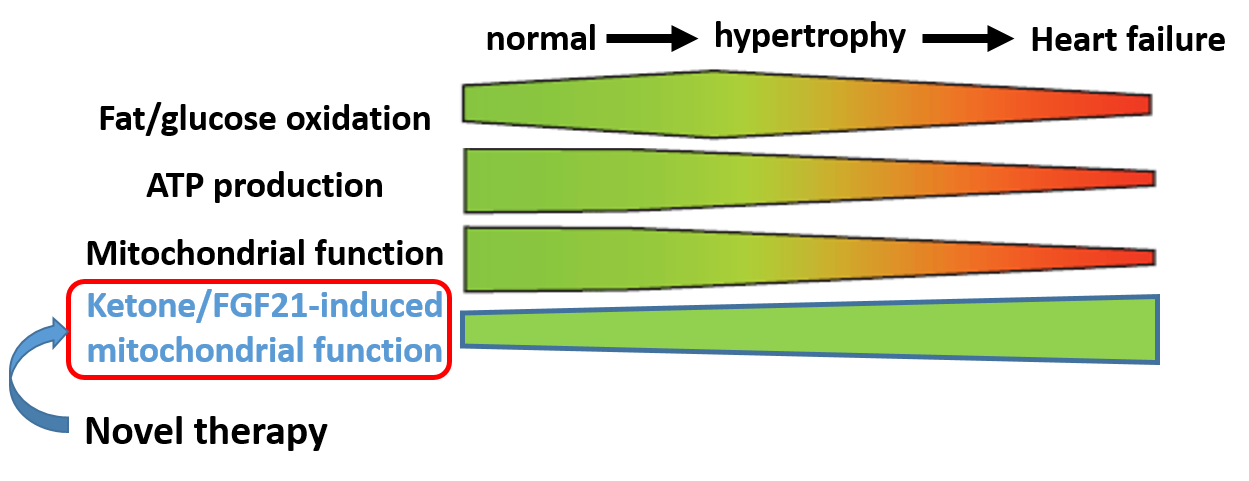ミトコンドリア機能改善経路の同定と新規心不全治療薬の開発
群馬大学大学院医学系研究科
教授
倉林 正彦

世界規模で、心不全患者数は人口の高齢化や糖尿病の増加によってパンデミックと呼ばれる状況である。心不全の発症メカニズムを解明する多くの研究によって、心不全の予後は改善しつつあるが未だに死亡率は高い。心不全は、「Engine out of fuel」と称される病態であり、エネルギー代謝の異常は最も根源的な病態生理的異常である。最近、ケトン体が不全心筋にとって付加的なエネルギー基質になることが明らかにされてきた。また、ケトン体の産生に関わる因子として同定されたFGF21が心不全時に増加することも報告された。本研究ではこれらの因子が、ATP産生を行うミトコンドリアの機能改善分子、ひいては心不全の新たな治療薬になりうるかを明らかにする。
?
Novel therapeutic approach for heart failure targeting mitochondrial function
Masahiko Kurabayashi
Professor, Graduate School of Medicine, Gunma University

Heart failure is a major and growing public health problem. Among many pathophysiological mechanisms, a decrease in myocardial energy production is a fundamental cause of heart failure. Our research aims to develop a novel therapeutic approach to improve the mitochondrial function, which contributes to an increase in ATP production. It is a growing appreciation that circulating ketone body, b-hydroxybutyrate (bOHB), is not just used during fasting and exercise, but also has important cellular signaling roles to regulate gene expression. Ketogenic factor, fibroblast growth factor (FGF21), is significantly increased in heart failure. Our particular interest is to determine whether bOHB and FGF21 play a role as signaling molecules that activate mitochondrial biogenesis and ATP production.


